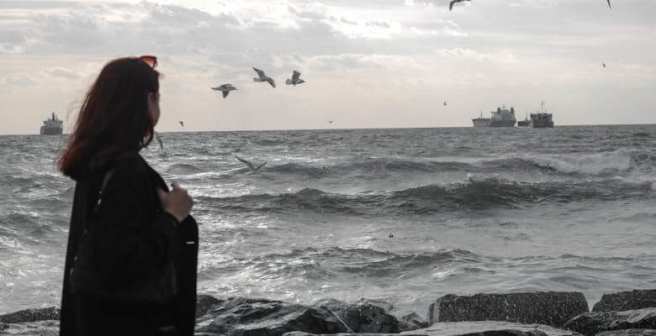How the Antarctic helped me become a researcher

My research life began at the end of my junior year. I chose the laboratory I was going to work at because I heard the professor say, “If you join my laboratory, you can go to the Antarctic”. That did it for me – I decided to go for it!
The laboratory I joined during my senior year specialized in environmental chemistry and I started my research in atmospheric chemistry, specifically nitrogen oxide.
Originally, I was supposed to visit the Antarctic during the second year of my master’s course but the exploration plan was delayed by a year. My supervisor told me, “You cannot go to the Antarctic unless you proceed to the doctoral course. What will you do?”
Typically, most students in the sciences join a company after completing their master’s degree, because it is difficult to get a technical or an R&D job with just a postgraduate degree. On the other hand, there are students who do not want to do a technical or an R&D job, and choose to become a bank employee or a public employee after graduating from their university. The problem of employment starts with the doctoral degree holder.
I did not have any vision for my future at that time, and so, I figured that I would proceed to the doctoral course. I simply did not want to miss the chance of visiting the Antarctic. I proceeded to the doctoral course just so that I could go there. My plan was to visit the Antarctic and on returning, quit the doctoral course and get a job at a company. But there was one problem standing in my way. I had to bear the travel expenses as well as put together enough money for my own living expenses.
Around that time, I heard that a new grant-in-aid system was soon to be launched at my university. This system would support the research and living expenses for graduate students. Grant recipients would get two hundred thousand yen as monthly salary and one million yen annually toward research expenses until they completed their doctoral courses. I put in a lot of effort, successfully passed the exam for the grant, and became the first student recipient of the program. Thus, I successfully managed to fund my dream of exploring the Antarctic.
I finally went to the Antarctic with a few fellow researchers. We stayed there for four months in a hut in the minus-ten-degree environment instead of a comfortable base, to perform our observations. Despite the travails of extreme weather, I enjoyed life in the Antarctic. There was only snow as far as the eye could see, but when I looked closely, I could find its rich expression, the subtle variations, the beauty in it. Those were refreshing days.
I returned from the Antarctic and found an opportunity to conduct further study in the US. I had planned to quit university after returning, but I changed my mind and decided to take this up, since I heard that my research would be fully funded. I also thought that I would quit my PhD after returning from the US. But while I was there, I experienced what I had not expected –-research life there was happy! Students and technicians at the laboratory where I worked, shared tasks like analysis and sampling. Back in Japan, we had to do all the work like sampling, instrument analysis, or data analysis by ourselves. Moreover, the laboratory where I had worked in Japan was relatively under-funded, so we also had to repair the equipment ourselves. Given that I had had such experiences, when I joined the laboratory in the US, I was welcomed and valued as a useful staff. Also, the American way of clearly keeping private life and research life separate was comfortable for me. I had lots of free time to think about my own future. Towards the end of my second year into the doctoral program, I decided to complete the doctoral course and become a researcher before returning to Japan.
Generally, a doctoral degree can be attained in three years. But I think that is possible for those who study really hard during the three years of the doctoral degree and also in the six years of university preceding that. A student like me who had been chanting “Antarctic, Antarctic“ like a mantra and who had been planning to quit university after returning to Japan had never till then gotten results which met the requirements for getting a doctoral degree.
Fortunately, I had worked hard for the Antarctic exploration, so I published some papers on it, enabling me to meet the requirements to get a doctoral degree. I was able to accomplish such a feat only because of my supervisor. However, given that my doctoral studies were fairly unplanned and completed over a fairly short period of time, I had no time to look for a job. So I stayed on at the university as a post-doc, and after six months, transferred to my current institution. My current research topic is water environment; it is not related to the Antarctic, or the atmosphere. But again, rather unexpectedly, the research life here is comfortable and exciting.
I had never dreamed that I would be a researcher, but life is unpredictable and here I am as a post-doc instead of a boy who just wanted to visit the Antarctic. I am looking forward to my academic future from now on!
Do you often feel stressed? Wouldn’t it be nice to share your highs and lows with a group of researchers who understand you? Join Researcher Voice, a support group for researchers on Facebook that focuses on their physical, mental, and emotional wellness. Click here to join and read this article to take a sneak peek into what’s going on in the group.



